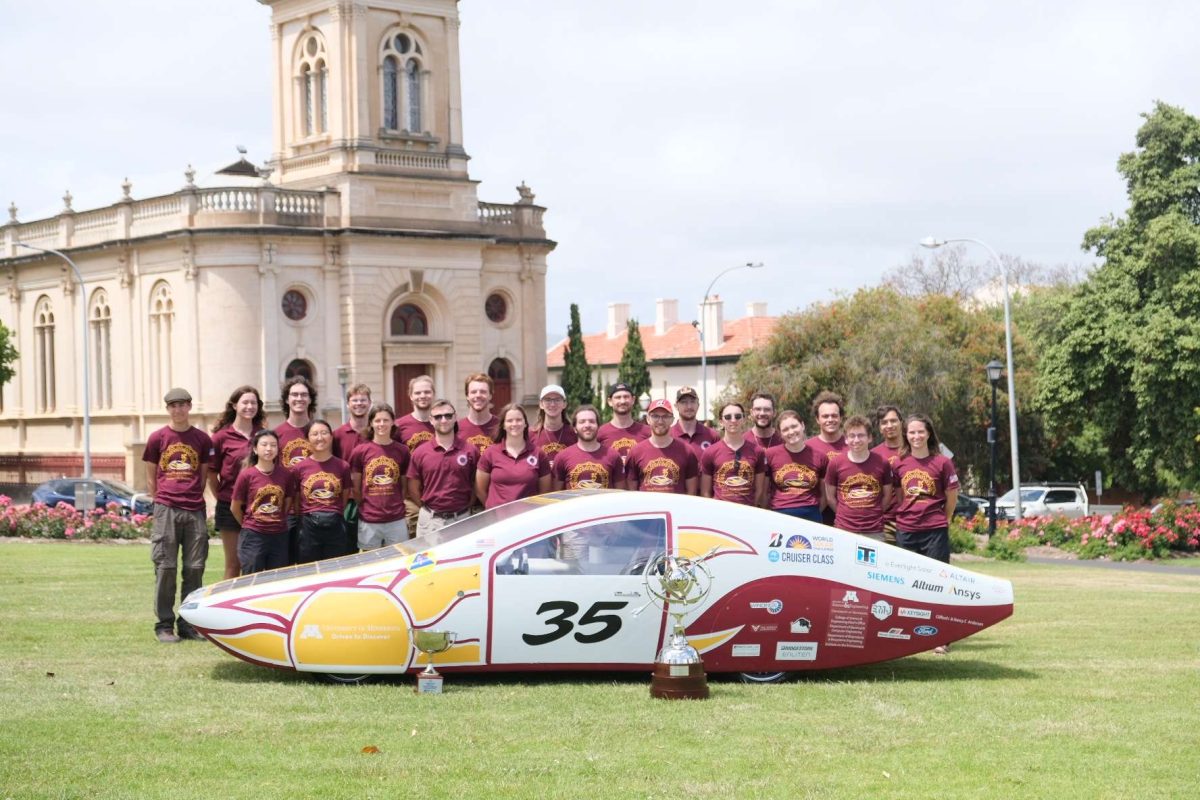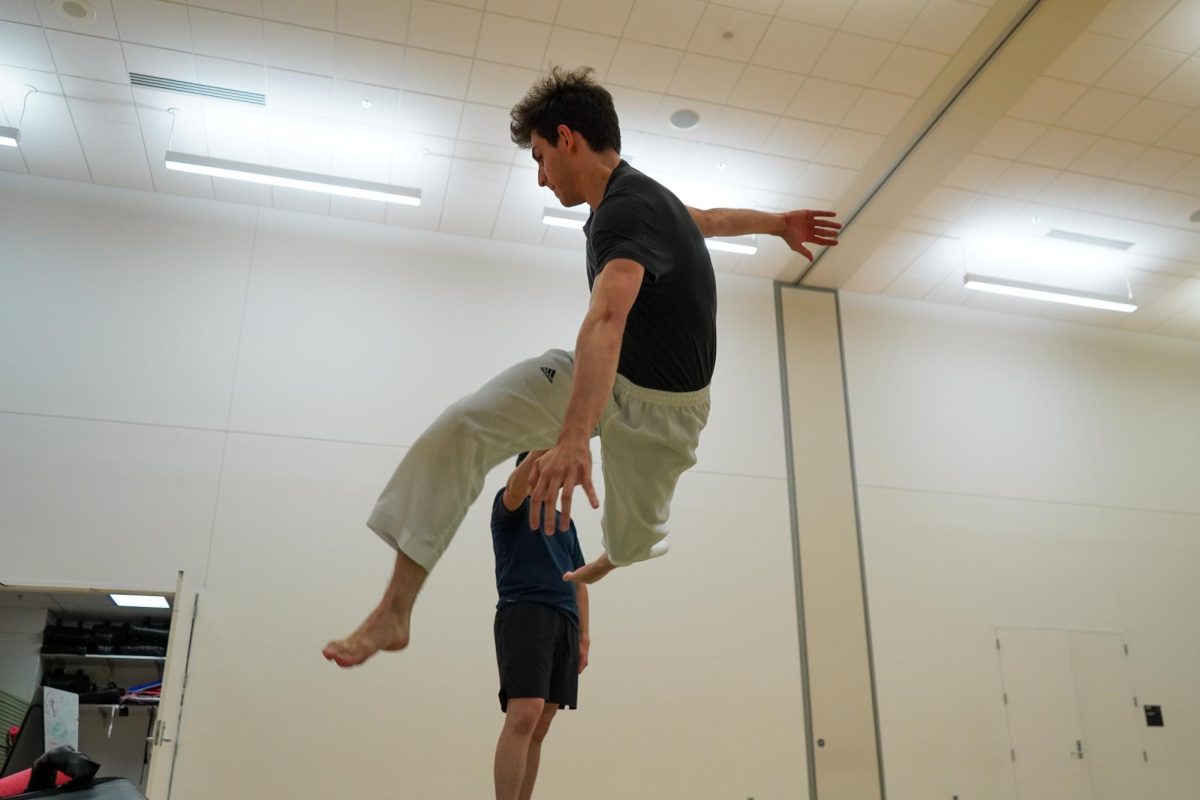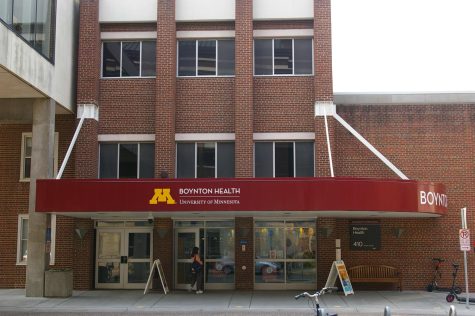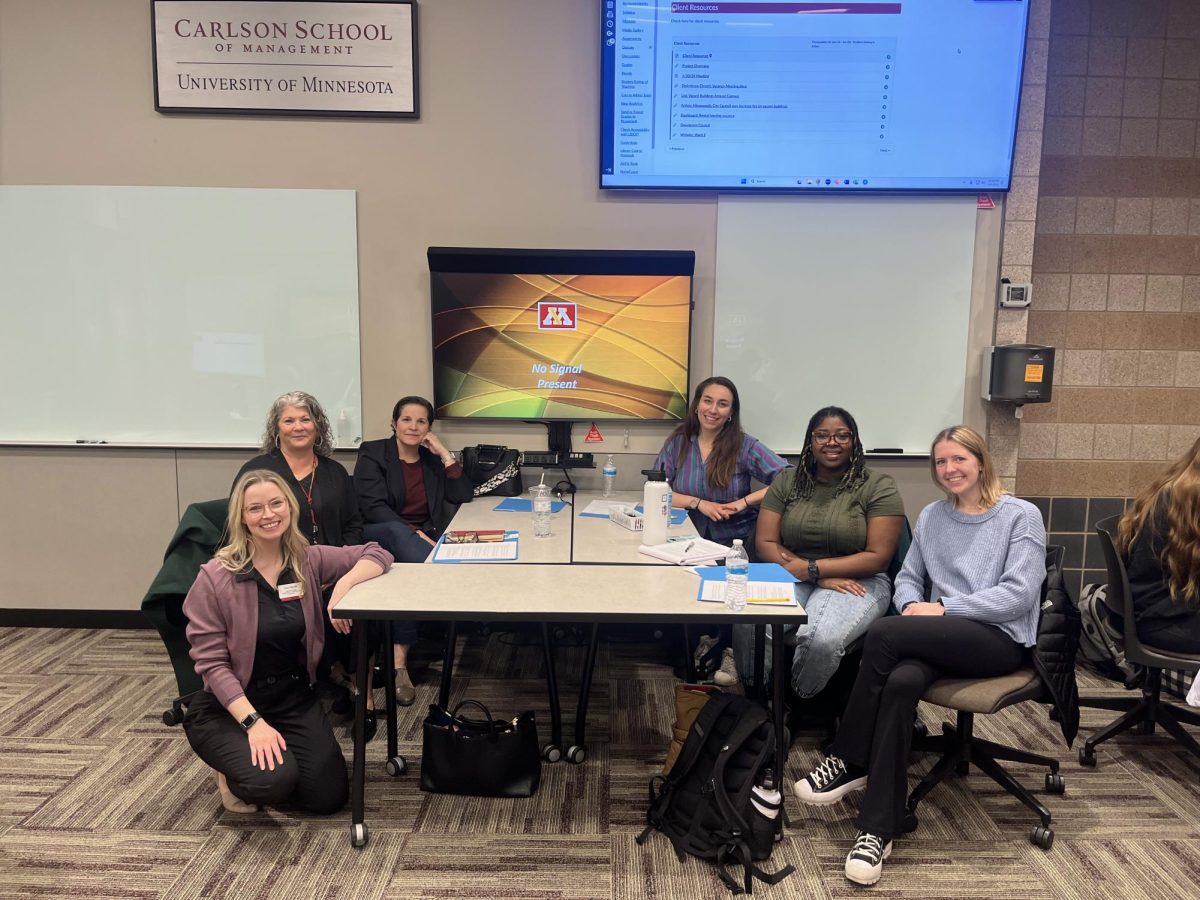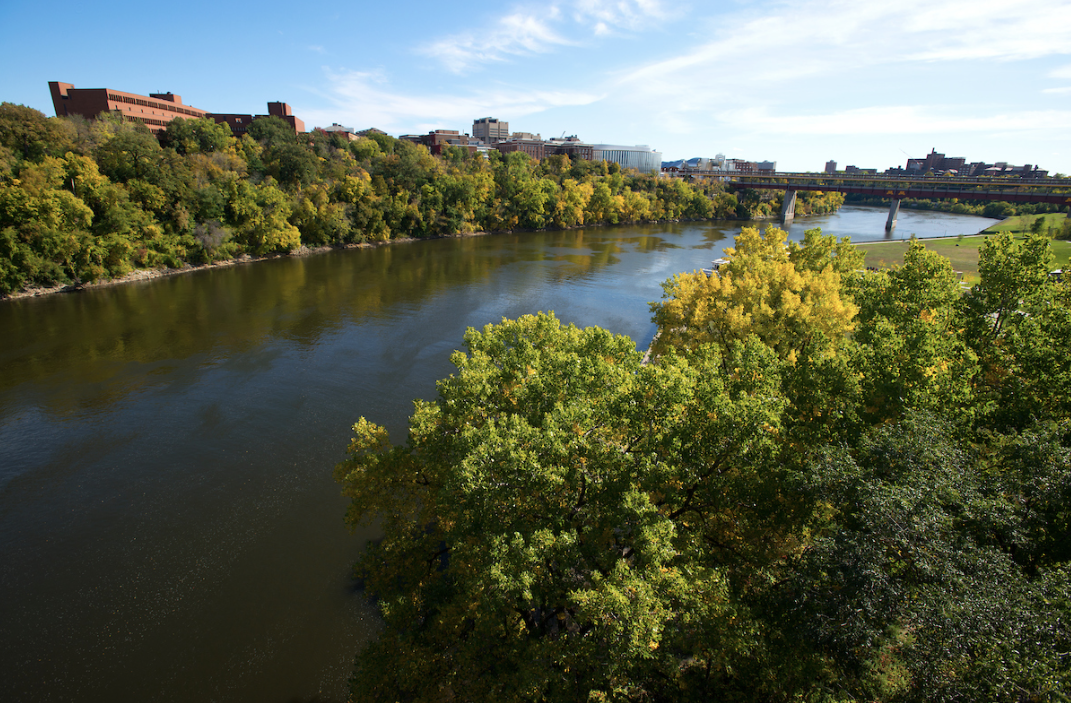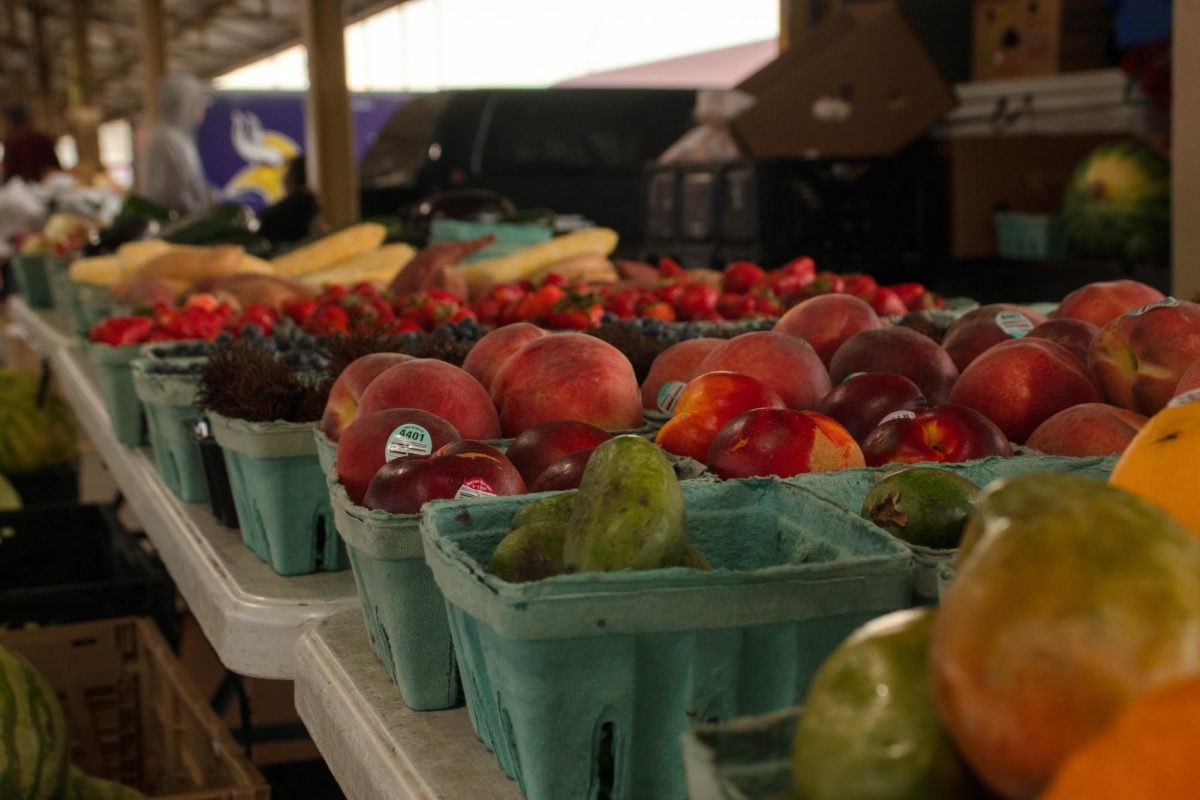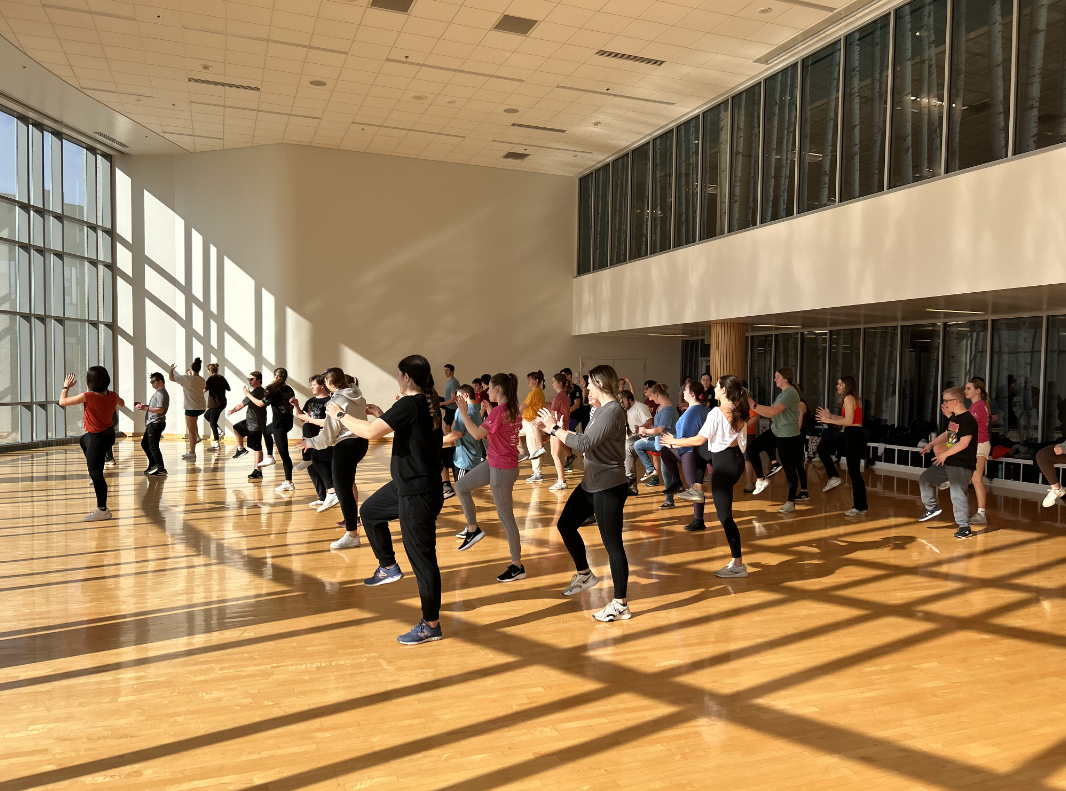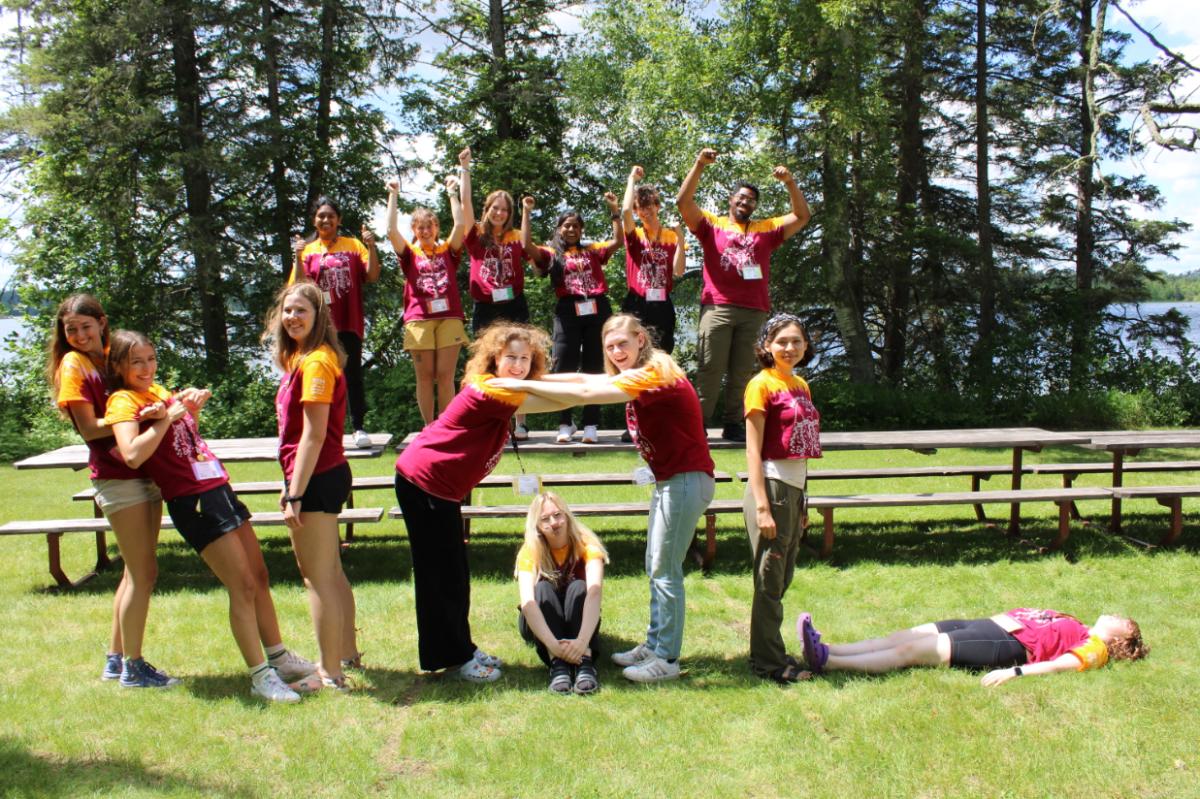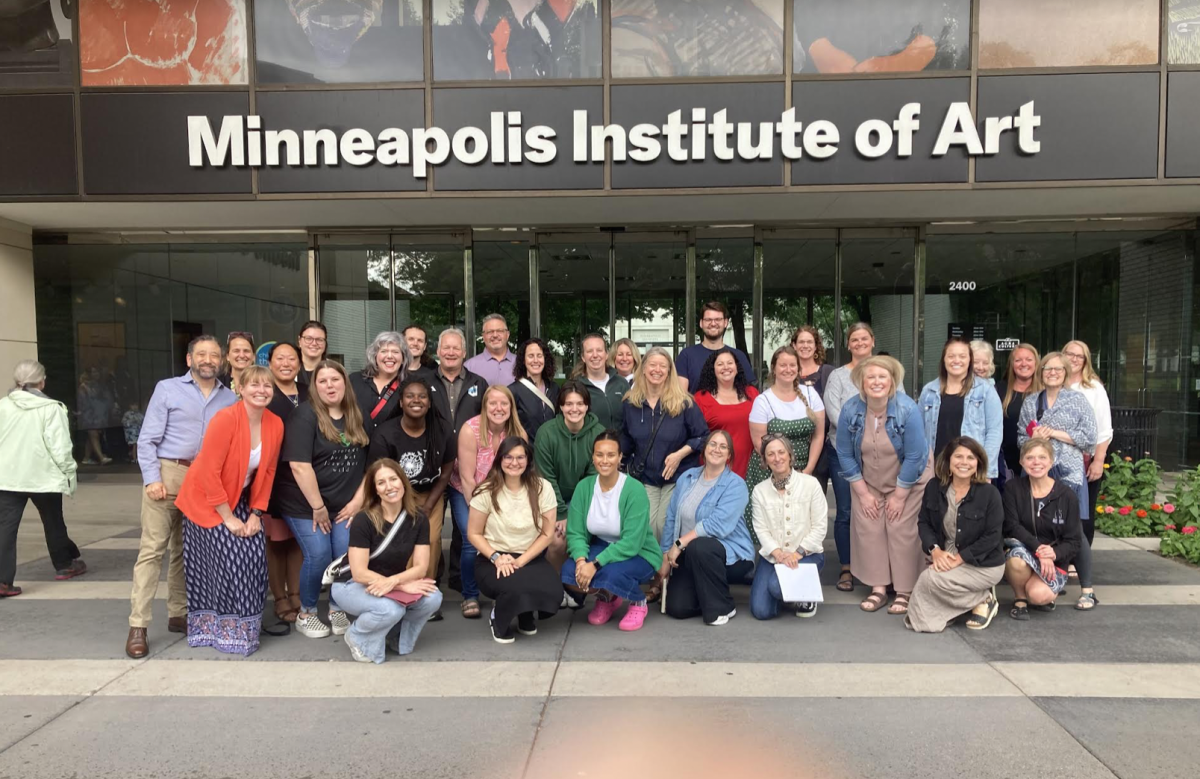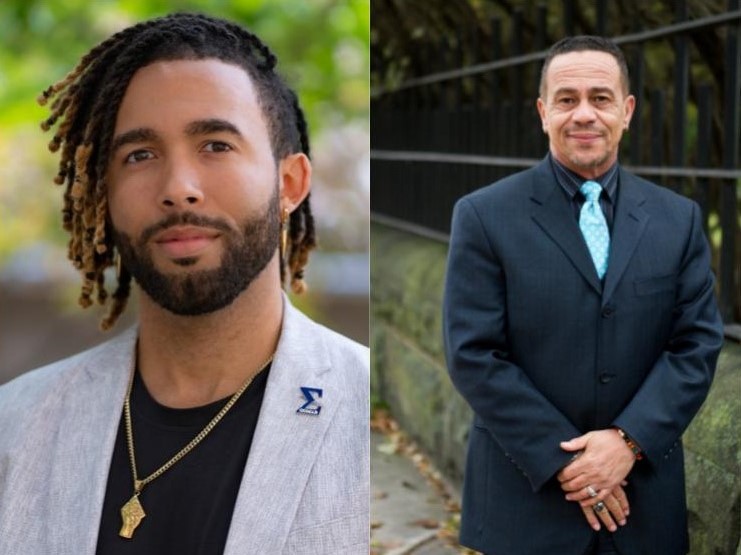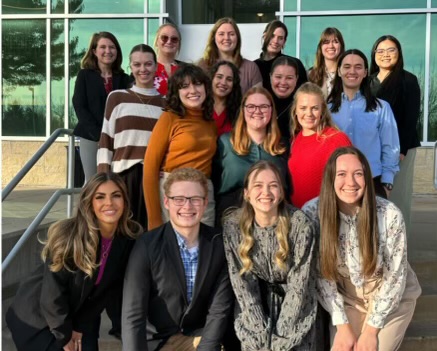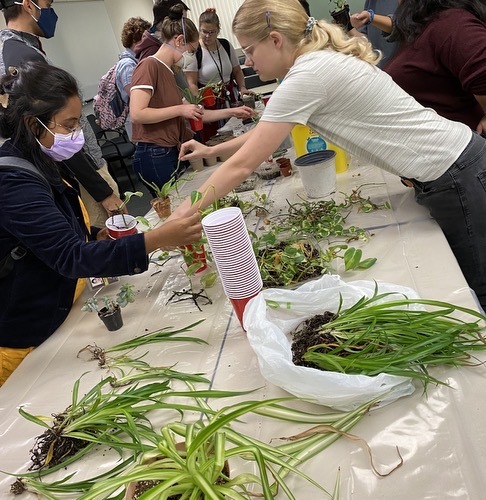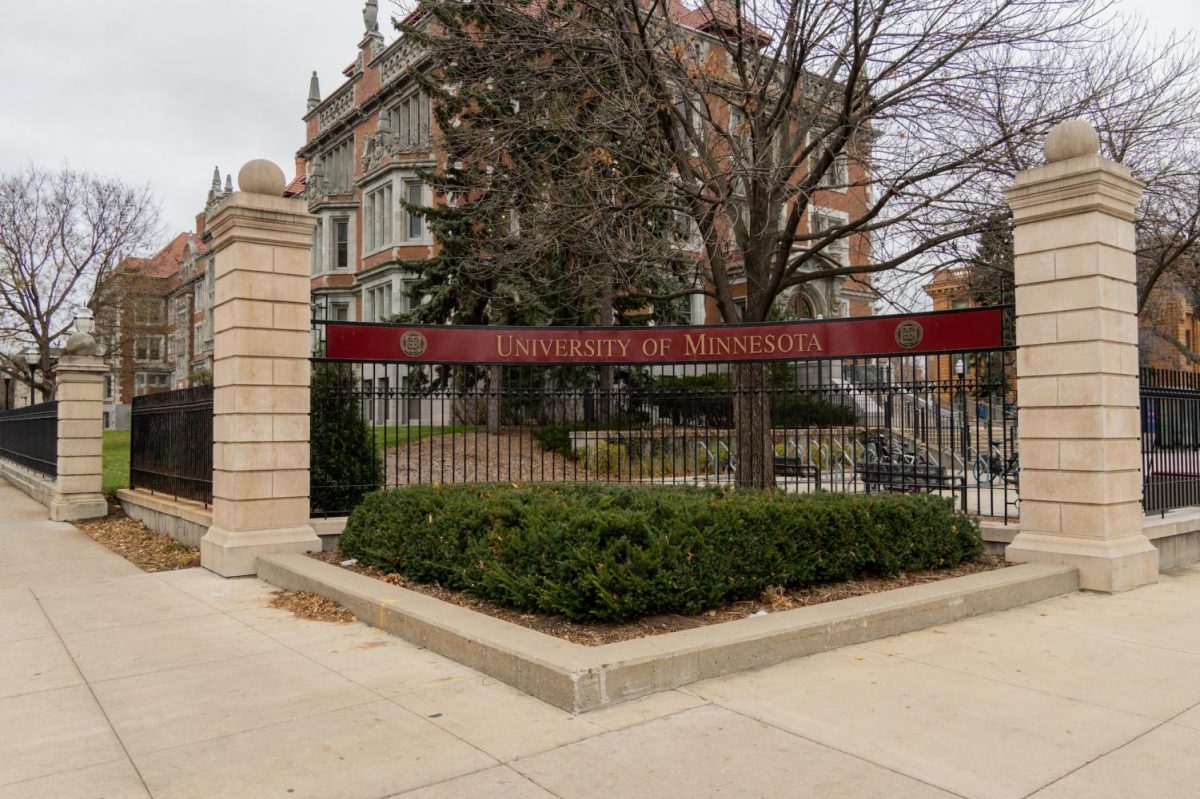The University of Minnesota’s Solar Vehicle Project (SVP) club won second place in the cruiser car class after racing in the 2023 Bridgestone World Solar Challenge (WSC) in Australia.
The 23-student crew left late September to spend six weeks preparing for a one-week race across Australia with their solar car.
The two-person solar car is a cruiser car, built to be practical and similar to a prototype for a car that could be seen on the road someday, said race crew captain Joel Roberts.
It was a tough, six-day race that spanned roughly 1,800 miles across the Australian desert from Darwin to Adelaide, Roberts said. Of the ten cruiser cars racing, half of them were out by the second day.
“It took a long time,” Roberts said. “Solar cars don’t go quite as fast as normal cars usually because you’re trying to save energy, so you can only go as fast as you can afford to go without running your battery low.”
According to Roberts, the long journey included camping on the side of the road at night, as Australia’s land ownership laws are not strict.
“Most of that land is just empty so you can kind of just pull right off and set up your tents and it was kind of wild just being out there under the stars with nothing out there for miles and miles and miles,” Roberts said.
The team faced a tough challenge at the end of the race. With strong headwinds and smoke from bushfires blocking the sun, none of the cruiser cars left in the race could finish, and the officials ruled the results would be determined by what had already happened in the race, Roberts said.
According to Roberts, scoring cruiser races is complicated because it is based on how much the team has to externally charge the car during the race, how many people the car can carry and meeting deadlines throughout the race.
Lily Andersen has been a general electrical member for three years on SVP and was the system lead for lights and vision for the race. She said they had not planned for long-lasting severe winds, but neither had the other teams.
“Our goal was to definitely cross the finish line and complete that third stage, but at the same time, we were proud of how our car performed,” Andersen said.
The team stopped seven kilometers behind the leading team, but according to Roberts, this is the first time the team had a podium finish, only finishing as high as fourth place in the previous six times they raced the WSC.
“Second place is a huge honor,” Roberts said. “In our ten years of competing in that race, it’s bigger than we’ve ever done before.”
Andersen said the team kept driving despite the extreme weather and harsh environment as a way to test drive the car, ultimately crossing the finish line.
Despite the setback, both Andersen and Amber Zierden, the director of engineering for SVP, said this race was the most reliable race they have seen. This means they only stopped once a day versus stopping every couple hours to fix the car.
“Each race has brought different challenges and different surprises,” Zierden said, having been a part of three different races with SVP. “I was really kind of taken aback with how smoothly this race went.”
According to Zierden, the car is new and the team had a limited amount of test driving, including no long-term endurance testing that would show for the nine-hour days of racing.
Along with winning second place, the team also won the inaugural Eberle-Selwood Championship Arrow Cup, which Roberts said is like the World Cup of solar cars. The award is presented by the International Solarcar Federation as a way to reward teams who compete in multiple races around the world.
“Not only did we finish this race and get second within this one race, but then they’re like actually, you guys are the best in the world,” Roberts said.
The University’s SVP team is currently one of two that competes both in the American Solar Challenge (ASC) and the WSC, according to Roberts.
Andersen was a part of both races the cup accounted for. She said the regulations between ASC and WSC have been slowly diverging from each other, making it difficult to go from one race to the other.
“An award like this, that kind of is recognizing participation in more events and allowing other people from other places to compete with each other and not necessarily having to go to the same competitions is really special because it is uniting the solar car community,” Andersen said.
Zierden said receiving the second award was awesome, as their team has always internally had a lot of pride in being one of the only teams to compete regularly in both ASC and WSC, but there has not ever been an external acknowledgment of that.
“Our team is doing this,” Roberts said. “We’re building solar cars not just to compete in races but because we kind of see it as a vision of the future and we want to do it to kind of inspire people and show them that renewable transportation is possible.”
According to Roberts, the most rewarding part of the experience was meeting other teams and fellow engineers from all over the world who are passionate about renewable energy and building solar cars.
Zierden said the whole team went into this knowing nothing about solar cars or solar car racing, but they all learned it on the job. She encourages people from any major who are interested to join SVP as long as they are curious and willing to learn.
“The race is always just an awesome experience,” Zierden said. “Imagine you’re on a road trip with 20 of your friends racing something that you built across the Australian outback. Pretty dang cool.”
University SVP has a website and Instagram page containing more details of the race and the team. With the next ASC race being in the summer of 2024, SVP is looking for help with travel and funding their endeavors, either with involvement on the team or through donations during Give to the Max Day.










